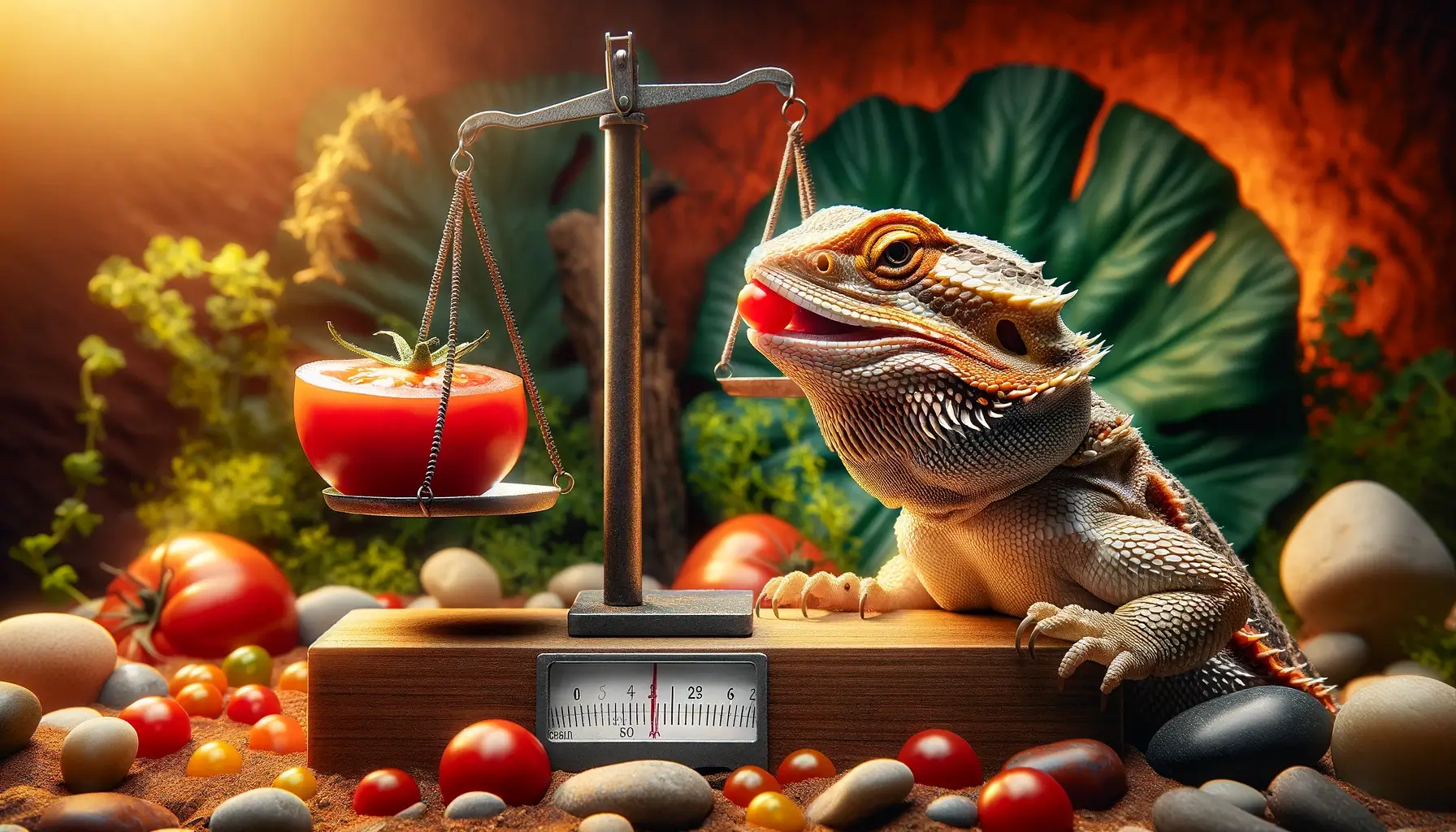Ever tried feeding your bearded dragon tomatoes and wondered if they’re a suitable part of their diet? As a bearded dragon owner, you always ensure your pet gets the best nutrition. Though common in our diets, Tomatoes can be debated regarding these exotic pets. Sure, they pack a punch of vitamins, but how well do they sit with your pet’s digestive system? Before you toss another slice into their habitat, you’ll want to discover the pros and cons of this juicy fruit in a bearded dragon’s diet. Stay tuned to learn more.
Understanding Bearded Dragon’s Dietary Needs
To fully comprehend your bearded dragon’s dietary needs, it’s essential to understand that they are omnivores, requiring a balanced diet of plant- and animal-based foods. Like their wild counterparts, captive bearded dragons need a varied diet to thrive. Now, you may wonder, can bearded dragons eat tomatoes? Can baby bearded dragons eat tomatoes? The answer to both is yes but with caution.
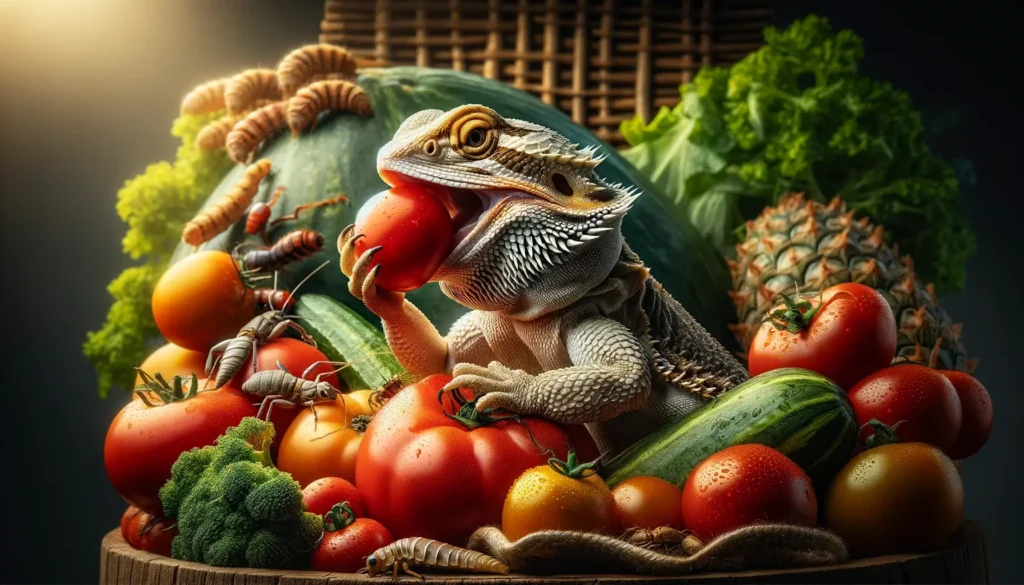
Although tomatoes can provide vitamins A and C, they also contain acid and sugar, which can upset your dragon’s stomach if given in excess. Therefore, tomatoes should only be part of a diverse diet, not a staple food. So, while you can offer tomatoes, monitoring the quantity and frequency is crucial.
How often can bearded dragons eat tomatoes? Not regularly. Tomatoes should only be a small portion of their diet, served occasionally as a treat. Can bearded dragons eat tomatoes every day? That’s not recommended due to their high acidity. It’s all about balance and moderation. Remember, various foods are key to meeting your dragon’s nutritional needs.
Can Bearded Dragons Eat Tomatoes
While it’s perfectly fine for your bearded dragon to consume tomatoes, it’s crucial to understand the potential risks and benefits associated with incorporating this fruit into their diet. The question is whether bearded dragons can eat tomatoes and eat different types such as cherry, grape, baby, and roma tomatoes.
The answer is yes. Bearded dragons can eat cherry, grape, baby, and even Roma tomatoes. However, they should be given in moderation due to their high acidity levels, which can upset your dragon’s stomach. As for green tomatoes, they should be avoided. They contain tomatine, a substance harmful to bearded dragons.
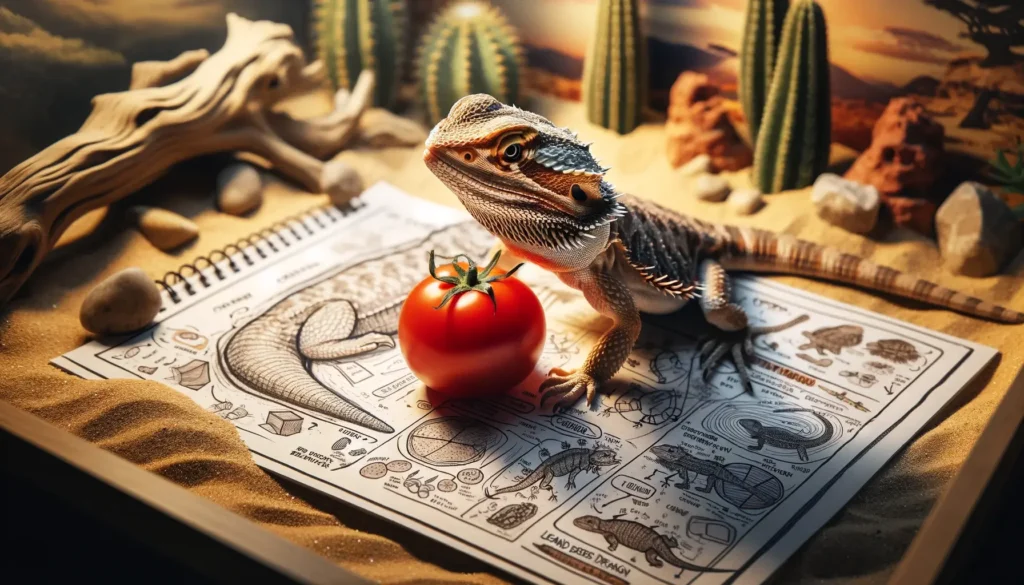
In addition, ensure you cut the tomatoes into small, manageable pieces to prevent choking. Remember, the size of the food should be no bigger than the space between your dragon’s eyes.
Tomatoes: A Suitable Food?
Considering the potential risks and benefits, you might wonder if tomatoes are suitable for your bearded dragon. On the plus side, tomatoes are rich in vitamin C, antioxidants, and other nutrients. However, they also contain oxalic acid, which can inhibit calcium absorption in bearded dragons. This can lead to metabolic bone disease, a serious condition for these reptiles.
You may also be curious if your bearded dragon can eat grapes, tomatoes, and cucumbers. The answer is yes, but moderation is key. Grape tomatoes share the same nutritional profile and risks as regular tomatoes. Conversely, cucumbers are mostly water and can provide hydration but lack significant nutritional value.
A varied diet is important to ensure your bearded dragon’s health and happiness. Tomatoes can be included but should not be a staple food. Offer them sparingly as a treat, and always provide a balanced diet of vegetables, fruits, and protein sources. Remember, your bearded dragon’s well-being relies on your informed feeding decisions.
Nutritional Value of Tomatoes
Despite their limited use in a bearded dragon’s diet, tomatoes pack a nutritional punch, offering a range of vitamins and minerals beneficial to your pet’s health. These vibrant fruits provide an essential balance of nutrients that can help your bearded dragon thrive.
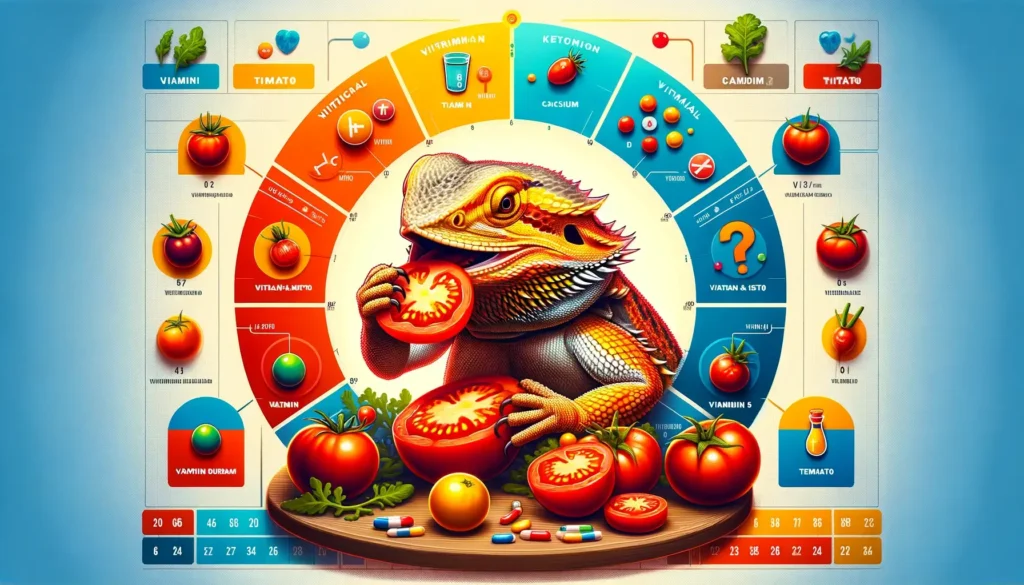
- Tomatoes are a rich source of Vitamin C, which aids in synthesizing collagen, a protein essential for skin and bone health.
- They contain Vitamin A, which is vital for vision, growth, and immune function.
- They’re high in Vitamin K, which is necessary for blood clotting and bone metabolism.
- Tomatoes provide a good amount of potassium, a mineral that helps maintain fluid balance and nerve function.
- They also contain lycopene, a powerful antioxidant linked to heart health and cancer prevention.
But remember, tomatoes should be moderately offered due to their high acidity. They’re best served as an occasional treat rather than a staple in your pet’s diet. You need to balance the nutritional benefits of tomatoes with the potential risks that can come from overfeeding. As a responsible pet owner, it’s important to understand the nutritional value of the foods you’re offering to your bearded dragon.
Alternative Foods for Bearded Dragons
Exploring other dietary options for your bearded dragon is crucial, as a well-balanced diet should include a variety of fruits, vegetables, and insects. Bearded dragons are omnivorous, so they’ll need a mix of plant-based foods and protein-rich insects.
Consider incorporating greens like collard, mustard, and dandelion. These are rich in calcium and other vital nutrients. Squash, peas, and bell peppers are also excellent veggie options. For fruits, opt for apples, bananas, and peaches, but always in moderation due to their high sugar content.
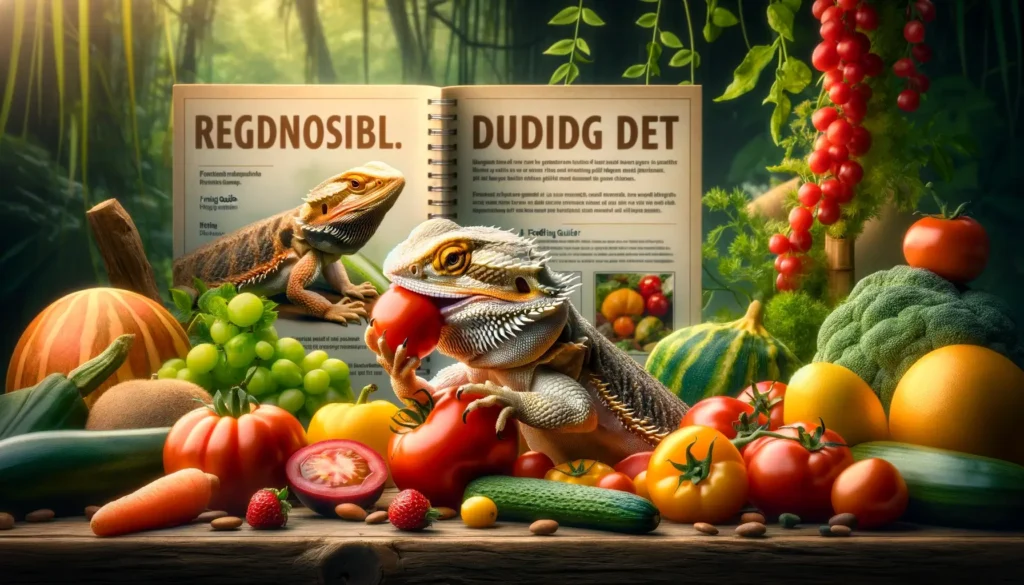
Insects, a primary protein source, should comprise about 75% of a juvenile bearded dragon’s diet and 30% of an adult’s. Crickets, mealworms, and roaches are ideal. Dust these insects with a calcium supplement before feeding.
Avoid feeding your bearded dragon lettuce as it’s nutritionally poor. Similarly, avocados and rhubarb are toxic to them. Also, don’t offer insects caught in your backyard, as they may carry pesticides.

